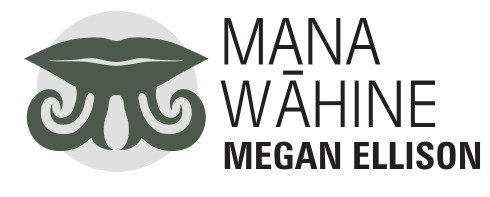
Although I grew up on my marae, I also didn’t experience a breadth of hard conversations to learn from. I think that probably speaks to the extreme colonisation of my hapū and how our ways of operating were minimalised and adapted over time to suit a Western worldview. There was a fair share of passive aggressiveness and the occasional confronting hui and debate, but I wasn’t always privy to that as a young person.
Māori have a strong culture of airing grievances kanohi ki te kanohi (face to face) on the marae or just simply having it out in whaikōrero (oratory) or addressing it within realms of tikanga and kawa (customs and protocol). The marae ātea — the open space is the area in which grievances can be shared and aired, face to face. There are past tūpuna within my hapū who used this innate way of having hard conversations in the political space and to take on racism. We had many tūpuna become politicians, and with a fire in their belly, take on other Pākehā politicians with a ferociousness that cut deep. They were straight up and able to challenge issues directly, as it was a part of how they operated and how they lived.
Therefore, although hard conversations were in my whakapapa, they didn’t come naturally. I was an extremely shy child, which is why, my mother tells me, she put me into dance — to bring me out of my shell. As a child, I ran from conflict and the stronger peers at primary school would boss me and I lived in fear of getting on their wrong side. I was meek, shy and mild. I would also say that I grew up witnessing passive aggression. I think this is probably quite a Kiwi cultural piece now, I come across it everywhere. In fact, I was passive aggressive — it’s a learnt behaviour, right? I say I was like that because meeting my husband and 16 years with him changed my behaviour.
My husband was incredibly straight up and honest. Apparently, according to his whānau, he was like that as a young boy, direct. Being the first graduate of the Moana House programme also fine tuned his ability to cut to the chase and confront people. He also visited San Francisco to look at a remarkably successful rehabilitation programme that was being run there at the time. It was called the Delancey Street Foundation and this programme claimed to be the most successful criminal rehabilitation programme in the world with operations in several US states and also in France.
They had actually established themselves from a base of criminal offenders themselves who, in the early ’70s, realised that other therapeutic communities, dealing primarily with drug or alcohol abuse, could not adequately deal with the specific offender behaviour. Therefore, Tahu learnt some approaches there to working with criminal offenders that were brutally direct and confronting and his ability to strip people down and highlight their issues and then build them back up was remarkable.
Therefore, Tahu worked on me over many years, challenging my prejudices, and my passive aggressiveness, he helped hone my confidence to have hard conversations and I am literally not the same person I was going into our relationship.
He always said the honesty is kindness and there were many times that I simply didn’t agree with him because I could see the hurt in someone he was challenging, see them flinch, and thought it was better to leave them blissfully ignorant and unaware. But, no, Tahu was all about confronting issues and believed the world would be a better place because of it.
I am not saying that he found all of this easy as he did have a few scars from his hard conversations and years in leadership. I also remember that when he was terminally ill, in and out of hospital and dealing with doctors and nurses, that he would ask very direct questions and never settle for an answer that he didn’t deem fit or relevant.
So, once again, I acknowledge my husband for helping me be better at leaning into and having hard conversations. Ultimately, I am getting better at them, although I still find it challenging and discombobulating. I think it is important to have hard conversations to get to a better place and, if at all possible, a shared understanding — even if it is agree to disagree.











